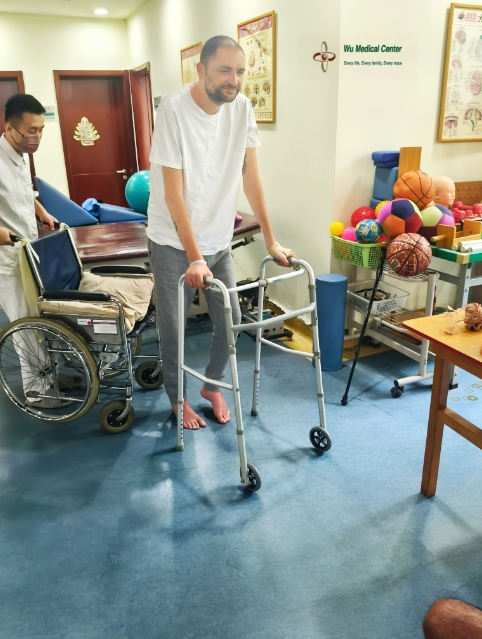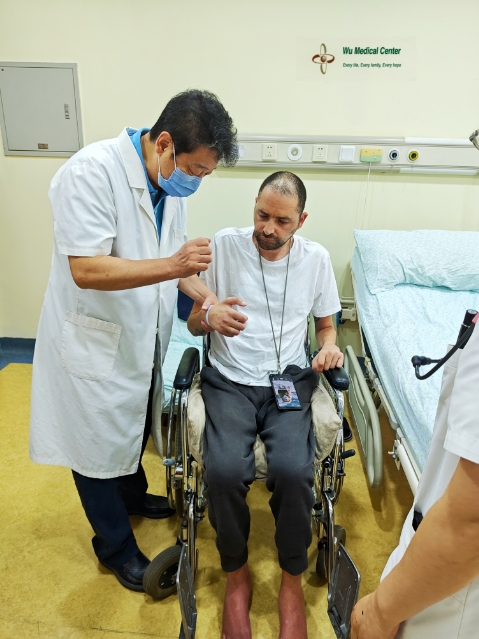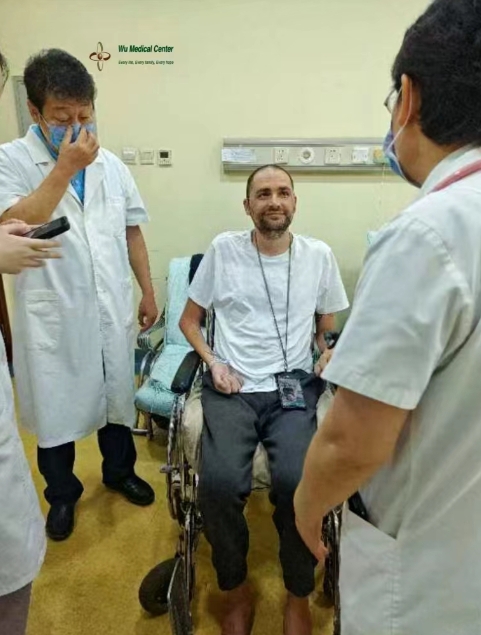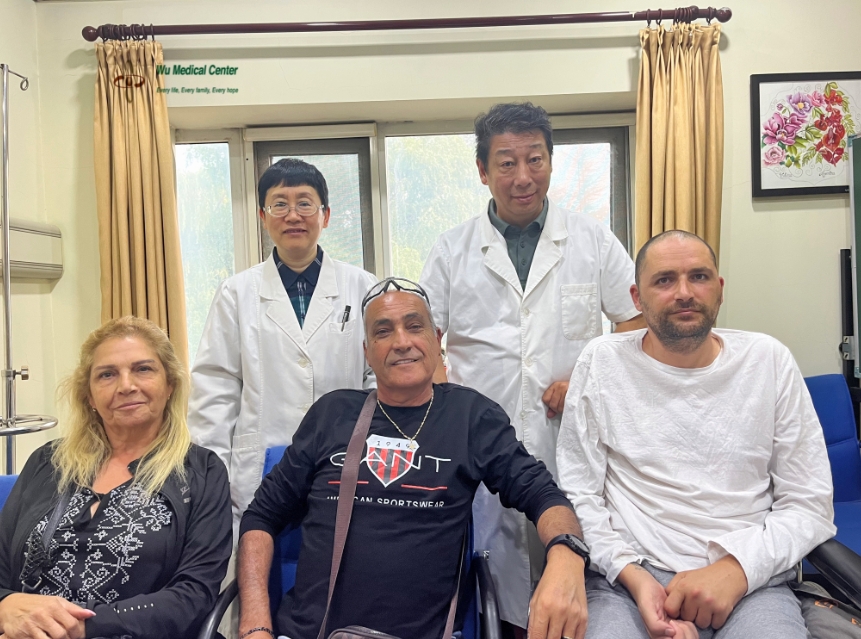Yaniv Golan-Amyotrophic lateral sclerosis (ALS)-(Israeli)
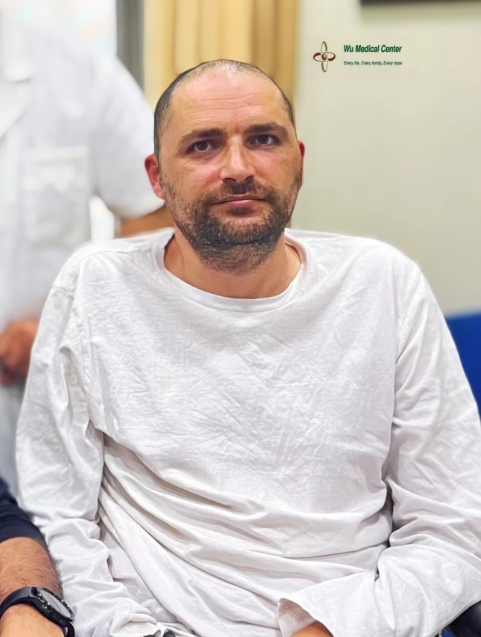 Patient's name: Yaniv Golan
Patient's name: Yaniv Golan
Gender: Male
Age: 41 years old
Nationality: Israeli
Diagnosis: Amyotrophic lateral sclerosis (ALS)
Admission condition:
The patient was admitted for progressive weakness of the limbs, muscle atrophy, and difficulty in speaking with a duration of 3 years. The diagnosis was "amyotrophic lateral sclerosis (ALS)". Currently, the patient had obvious weakness in his 4 limbs, muscle atrophy in 4 limbs, fasciculation. He could not stand or walk independently, had swelling of his feet and he also experienced sometimes severe pain in his back and legs. He had difficulty in lifting his arms and hands, with obvious weakness in his finger movements. He had a reduced voice and no clear symptoms of choking or swallowing dysfunction. During the night, he intermittently required the use of a non-invasive ventilator. He denied a history of chronic diseases or infectious diseases, and had no history of medication or food allergies.
Physical examination:
Patient's pulse was 60 beats per minute, his respiratory rate was 20 breaths per minute, his blood pressure was 125/80 mmHg, and his fingertip oxygen saturation was 94%. His chest wall respiratory movement was slightly reduced, and the bilateral lower lung sounds were slightly reduced. No obvious dry or moist rales were heard. His heart sounds were strong, regular, and without murmurs in various valve areas of the heart. His abdomen was flat and soft, and the liver and spleen were not palpable. There was obvious pitting edema in his ankles and lower limbs of both his lower limbs.
Neurological examination:
The patient appeared clear headed and had a normal mental status. His articulation was slightly impaired and his voice was slightly lowered. His memory and calculation skills were normal. His eye movements were flexible and there was no nystagmus. The bilateral nasolabial folds were symmetrical, and his tongue is protruded in the middle with weak tongue movement. He had weak jaw strength. His chewing strength was roughly normal. His bilateral soft palate lift was weak, and the uvula was centered. He had a neck rotation and shoulder shrugging muscle strength of approximately grade 4. His left upper limb had muscle strength of grade 2+, he could barely touch his nose with his left hand when supine and the upper arm was almost unable to be raised. His right upper limb had muscle strength of grade 2, and he was unable to touch his chin with his right hand when supine. His lower limbs had muscle strength of grade 2+ and could not stand with the assistance of crutches. His abdominal and back muscles were weak. His muscle tone in all four limbs was basically normal. There was marked atrophy in his all four limbs, and his sensation in all four limbs was basically normal. His lower limb tendon reflexes were exaggerated, and there were positive pathological findings in his all four limbs; his meningeal irritation signs were negative.
Treatment process:
The patient was diagnosed with "amyotrophic lateral sclerosis" upon admission. During his hospitalization, neural stem cells were used to repair the damage to the motor nerves, while mesenchymal stem cells were given to increase the nutritional support, endocrine support, and immune support for the damaged nerves. Additionally, drugs such as edaravone, riluzole, and nerve growth factor were used in combination with comprehensive rehabilitation treatment.
Post-treatment:
The patient's motor function has improved significantly. His hands have improved significantly in muscle strength, with his left hand muscle strength and grip strength improving to grade 3+ . His left upper limb mobility and speed have significantly improved, and he can now grasp a cup of water for drinking a little water and grasp a cigarette box with his left hand. His right upper limb muscle strength and grip strength are at grade 3- and he can now grasp the fingers of others with his right hand. His lower limbs have improved to grade 3+ of muscle strength, and he can stand and walk 20-30 meters with the assistance of a walker and complete turning movements. His abdominal and back muscles have increased in strength. His voice has become louder and his pronunciation clearer compared to when he was admitted. His energy, physical stamina, and exercise endurance have improved, and his balance ability and flexibility have significantly improved.
